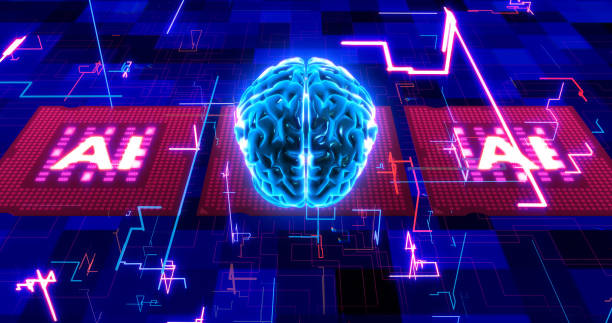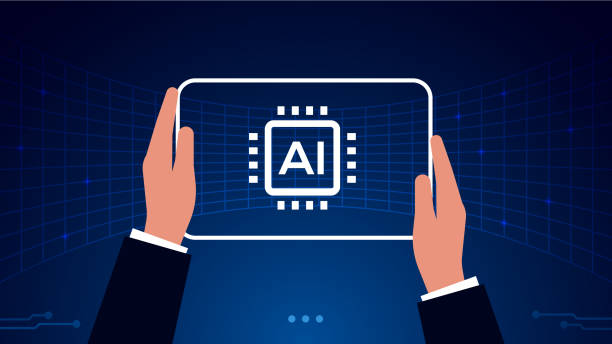What is Artificial Intelligence and How Does it Revolutionize the World of Work?
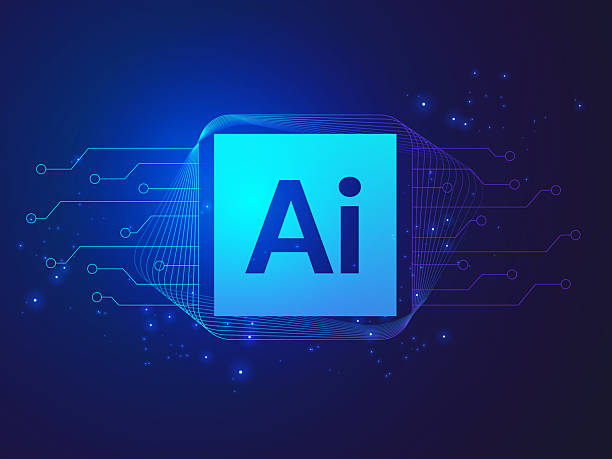
Artificial Intelligence (AI) refers to a branch of computer science that deals with creating machines capable of performing tasks that typically require human intelligence.
This includes learning, reasoning, problem-solving, language understanding, and pattern recognition.
#Artificial_Intelligence is no longer a science fiction concept; rather, it is rapidly becoming a reality across various industries.
From automotive and healthcare to finance and education, AI has the potential to transform the way we work and live.
One of the significant aspects of this transformation is its impact on the future of AI jobs.
Meanwhile, automation is one of the most significant effects of artificial intelligence on the job market.
AI can automate many repetitive and routine tasks, which leads to increased productivity and reduced costs for companies.
However, this automation can lead to the loss of some traditional jobs.
But at the same time, AI also creates new job opportunities.
The development, deployment, and maintenance of AI systems require skilled professionals in areas such as machine learning, data science, and software engineering.
Therefore, the future of AI jobs comes with a combination of challenges and opportunities.
Furthermore, artificial intelligence can help improve working conditions.
AI can take on dangerous or arduous tasks, which can lead to a reduction in workplace injuries and increased employee satisfaction.
For example, in the mining industry, AI-powered robots can extract minerals instead of humans.
In the future of AI jobs, professionals must acquire new skills to keep pace with this technology.
These skills include critical thinking, problem-solving, creativity, and the ability to collaborate with machines.
Are you losing business opportunities due to an outdated website? With Rasawweb, permanently solve the problem of not attracting potential customers through your website!
✅ Attract more high-quality leads
✅ Increase brand credibility in the eyes of customers
⚡ Get a free consultation for corporate website design
Jobs at Risk and New Opportunities Arising from Artificial Intelligence
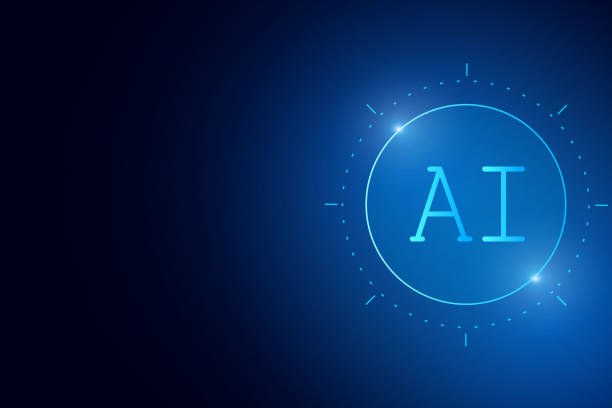
As artificial intelligence advances, some jobs are more at risk of automation than others.
Jobs involving repetitive and routine tasks, such as data entry, telephone operators, and production line workers, are more susceptible to automation.
On the other hand, jobs requiring creative thinking, interpersonal skills, and expertise are less at risk.
This includes professions such as managers, engineers, scientists, and healthcare professionals.
In the future of AI jobs, individuals must continuously upgrade their skills to remain competitive in the job market.
However, artificial intelligence not only eliminates jobs but also creates new employment opportunities.
Jobs such as machine learning specialists, data scientists, AI engineers, and AI consultants are currently in high demand.
These roles require deep knowledge in AI and the ability to develop, deploy, and maintain AI systems.
Furthermore, AI can help create new jobs in fields such as education, healthcare, and customer service.
For example, AI can assist in developing personalized educational systems, which can lead to new jobs for teachers and trainers.
The future of AI jobs demands flexibility and adaptability to change.
To optimally utilize the opportunities of AI career future, individuals must simultaneously develop their technical and soft skills.
Technical skills include knowledge in machine learning, data science, and programming.
Soft skills include critical thinking, problem-solving, creativity, and the ability to collaborate with others.
By acquiring these skills, individuals can succeed in new and emerging AI-related jobs.
Key Skills for Success in the Age of Artificial Intelligence
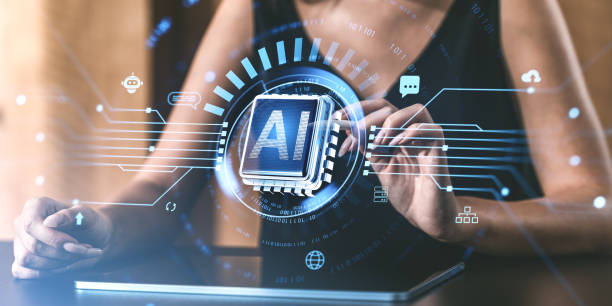
To succeed in the AI career future, acquiring specific skills is essential.
These skills encompass both technical and soft skills.
Technical skills include knowledge in machine learning, data science, programming, and statistics.
Soft skills include critical thinking, problem-solving, creativity, communication, and collaboration.
These skills help individuals face new challenges and seize new opportunities.
Here is a table showing the required skills for the AI career future
| Skill | Description |
|---|---|
| Machine Learning | Knowledge of machine learning algorithms and techniques for developing AI models |
| Data Science | Ability to collect, analyze, and interpret data to extract patterns and insights |
| Programming | Proficiency in programming languages such as Python, Java, and R |
| Critical Thinking | Ability to analyze information and make logical decisions |
| Problem-Solving | Ability to identify and solve complex problems |
| Creativity | Ability to generate new and innovative ideas |
| Communication | Ability to communicate effectively with others |
| Collaboration | Ability to work in a team and collaborate with others |
Furthermore, the ability to continuously learn and adapt to changes is crucial.
The world of AI is rapidly evolving, and professionals must continuously update their knowledge and skills.
Participating in training courses, conferences, and workshops can help individuals stay informed about the latest advancements in AI.
The future of AI jobs is very bright for those who are ready to learn and adapt.
Industries Most Affected by Artificial Intelligence
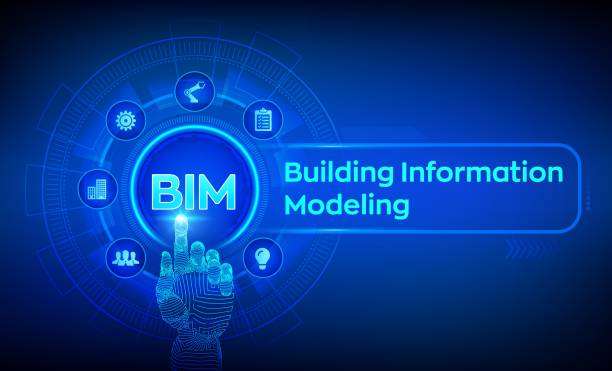
Artificial intelligence currently has a significant impact on various industries, and this impact is expected to grow in the future.
Some of the industries most affected by artificial intelligence include healthcare, finance, manufacturing, transportation, and retail.
In healthcare, AI can assist in diagnosing diseases, developing drugs, and providing personalized care.
In finance, AI can help detect fraud, manage risk, and provide automated financial services.
In manufacturing, AI can contribute to process automation, quality improvement, and cost reduction.
In transportation, AI can aid in developing self-driving vehicles, optimizing routes, and enhancing safety.
In retail, AI can assist in providing personalized product recommendations, improving customer experience, and optimizing inventory management.
The future of AI jobs in these industries is very promising.
In the healthcare industry, artificial intelligence significantly helps with faster disease detection. In the banking industry, it prevents major frauds with faster and more accurate detection, and similarly, it has greatly assisted various other industries, creating new job opportunities.
These transformations across various industries not only create new job opportunities but also necessitate new skills.
Professionals must continuously update their knowledge and skills to remain competitive in these industries.
The future of AI jobs demands flexibility and adaptability to change.
Are you frustrated by your online store’s low conversion rate?
Rasawweb, with professional e-commerce website design, is your definitive solution!
✅ Increase your sales and revenue
✅ Unparalleled user experience for your customers
⚡ Get a free consultation now!
The Role of Governments and Policymaking in Shaping the Future of AI Jobs
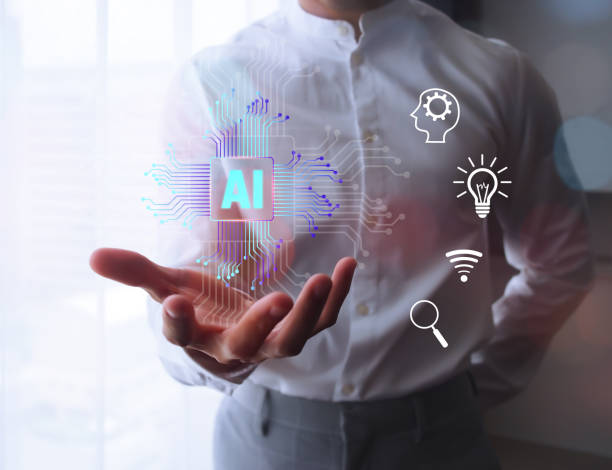
Governments and policymakers play a crucial role in shaping the future of AI jobs.
They can contribute to AI development and the creation of new job opportunities by establishing appropriate policies, promoting education, and investing in research and development.
Governments can help individuals acquire the necessary skills for success in the AI era by offering training and upskilling programs.
They can also contribute to the development of new AI technologies and the creation of new jobs by investing in research and development.
The future of AI jobs is directly influenced by government policies.
Furthermore, governments can help mitigate the negative impacts of AI on the job market by establishing appropriate laws and regulations.
For example, they can assist individuals who have lost their jobs due to automation by creating unemployment support programs.
They can also help fund these programs by taxing the profits of companies that utilize automation.
In the AI career future, collaboration between government, industry, and academia is crucial for creating an innovative and dynamic ecosystem.
Governments can help ensure that AI is used for the benefit of society by establishing ethical standards for its use.
These standards can include aspects such as transparency, accountability, and non-discrimination.
By establishing these standards, governments can help build public trust in AI, which can lead to broader adoption and use of AI.
The future of AI jobs directly depends on how this technology is managed and regulated by governments.
Adaptive Education and its Role in Preparing the Workforce for the Age of Artificial Intelligence
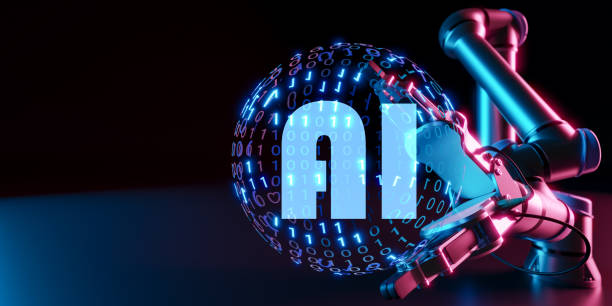
Adaptive education plays a vital role in preparing the workforce for the age of artificial intelligence.
Adaptive education refers to an approach in teaching that responds to the individual needs of students.
In this approach, educational content, teaching methods, and assessments are tailored based on students’ knowledge level, learning style, and interests.
This approach can help students acquire the necessary skills for success in the AI era.
One of the advantages of adaptive education is that it can help students acquire the technical skills required to work with AI.
These skills include programming, data science, and machine learning.
By providing personalized training in these areas, students can gain the knowledge and skills necessary for the development, deployment, and maintenance of AI systems.
The future of AI jobs requires professionals with strong technical skills.
Furthermore, adaptive education can help students acquire the soft skills necessary for success in the AI era.
These skills include critical thinking, problem-solving, creativity, communication, and collaboration.
By providing interactive and project-based learning activities, students can develop these skills.
The future of AI jobs requires individuals who can effectively collaborate with others and solve complex problems.
Ethical and Social Challenges Arising from Artificial Intelligence in the Job Market
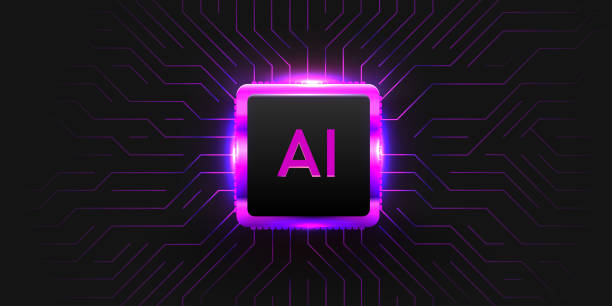
Artificial intelligence creates significant ethical and social challenges in the job market.
One of these challenges is the issue of discrimination.
AI algorithms can be unintentionally discriminatory, meaning they may make decisions that disadvantage specific groups of people.
This discrimination can occur in areas such as hiring, promotion, and wages.
To prevent such discrimination, AI algorithms must be thoroughly reviewed and tested to ensure they are unbiased.
The future of AI jobs must be fair and equal for everyone.
Another ethical challenge arising from AI is the issue of privacy.
AI systems can collect and process large volumes of data, which can lead to privacy violations for individuals.
To protect individual privacy, strict laws and regulations must be established for the collection, use, and storage of data by AI systems.
In the AI career future, protecting individual privacy must be a priority.
Here is a table outlining the advantages and disadvantages of using artificial intelligence in the job market
| Advantages | Disadvantages |
|---|---|
| Increased Productivity | Job Loss |
| Reduced Costs | Discrimination |
| Improved Working Conditions | Privacy Violation |
| Creation of New Job Opportunities | Ethical Challenges |
Furthermore, the issue of accountability is also a significant challenge.
If an AI system makes a mistake, who is responsible? Is the system’s developer responsible, or the user who employs it? To resolve this challenge, clear mechanisms must be established for determining accountability in cases of errors by AI systems.
The future of AI jobs must be accompanied by accountability.
Individual and Professional Adaptation Strategies to Changes Caused by Artificial Intelligence
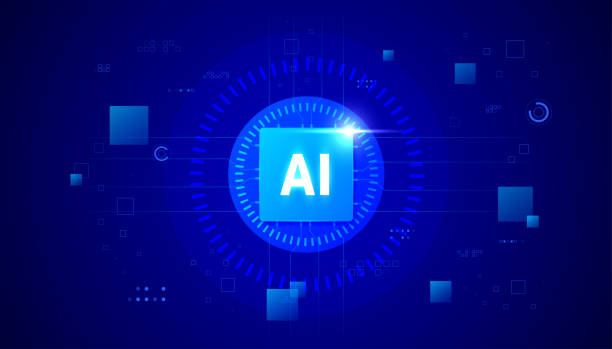
To adapt to changes caused by artificial intelligence, individuals must adopt specific personal and professional strategies.
At the individual level, people must continuously upgrade their skills and keep their knowledge updated in AI-related fields.
Participating in training courses, conferences, and workshops can help individuals stay informed about the latest advancements in AI.
Furthermore, individuals must be flexible and ready to change their job or profession if necessary.
The future of AI jobs requires lifelong learning.
At the professional level, companies must provide their employees with training and professional development opportunities so they can acquire the necessary skills to work with AI.
Companies should also foster a culture of innovation and learning so that employees can easily adapt to changes.
Companies that value the AI career future must strive to create suitable training opportunities for their employees.
Furthermore, companies should pay attention to diversity and inclusion in the workplace.
More diverse and inclusive teams are typically more creative and innovative and can better face new challenges.
The future of AI jobs should include all individuals, regardless of their background.
Companies that address this issue can benefit from AI while also contributing to the creation of a more just and equal society.
Are you tired of your e-commerce website not generating as much revenue as its potential allows? Rasawweb, specializing in professional e-commerce website design, solves this problem permanently!
✅ Increase sales rate and revenue
✅ High loading speed and unparalleled user experience
⚡ Get a free consultation for e-commerce website design!
Forecasting Trends and Emerging Jobs in the Field of Artificial Intelligence
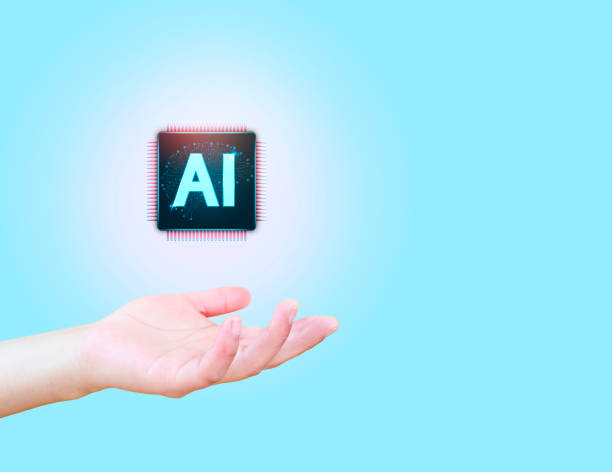
Forecasting trends and emerging jobs in the field of artificial intelligence is crucial for individuals and organizations.
By being aware of these trends, individuals can acquire the necessary skills, and organizations can adjust their strategies to adapt to changes brought by AI.
Some important trends in the AI field include advanced automation, explainable AI, ethical AI, hybrid AI, and edge AI.
These trends create new job opportunities in areas such as AI developers, data engineers, cybersecurity specialists, and AI consultants.
The future of AI jobs is full of exciting opportunities.
Some emerging jobs in the AI field include machine learning engineer, data scientist, business intelligence specialist, robotics specialist, and natural language processing specialist.
These jobs require deep knowledge in AI and the ability to develop, deploy, and maintain AI systems.
Individuals must continuously upgrade their skills to succeed in these jobs.
The future of AI jobs requires skilled and motivated professionals.
To forecast trends and emerging jobs in the AI field, individuals and organizations can utilize various resources.
These resources include research reports, scientific articles, conferences, and workshops.
Furthermore, networking with AI specialists can help individuals stay informed about the latest advancements and trends in this field.
The future of AI jobs is very bright for those who are ready to learn and adapt.
Successful Case Studies and Lessons Learned in Integrating Artificial Intelligence in Organizations

Studying successful cases of artificial intelligence integration in organizations can provide valuable lessons for other organizations.
Many organizations across various industries have successfully integrated AI into their processes and benefited from its advantages.
For example, retail companies use AI to provide personalized product recommendations to customers, optimize inventory management, and enhance customer experience.
Financial companies use AI for fraud detection, risk management, and providing automated financial services.
Manufacturing companies use AI for process automation, quality improvement, and cost reduction.
These case studies demonstrate that AI can help organizations increase their productivity, reduce costs, and improve customer experience.
The future of AI jobs in organizations that utilize this technology is very promising.
One of the important lessons learned from these case studies is that AI integration must be carried out with a clear and defined strategy.
Before commencing AI integration, organizations must precisely define their objectives and formulate a plan to achieve them.
Additionally, organizations must provide their employees with training and professional development opportunities so they can acquire the necessary skills to work with AI.
Organizations must make good use of the AI career future to avoid facing a shortage of skilled personnel.
Furthermore, organizations must pay attention to the ethical and social issues arising from AI.
They must ensure that their AI systems are unbiased and respect individuals’ privacy.
By adhering to these issues, organizations can benefit from AI while also contributing to the creation of a more just and equal society.
The future of AI jobs must be accompanied by accountability.
Frequently Asked Questions
| Question | Answer |
|---|---|
| What impact will artificial intelligence have on the future job market? | Artificial intelligence will automate repetitive jobs, but at the same time, it will create new and more complex jobs in areas such as the development, maintenance, and training of AI systems. |
| Which jobs are most at risk of being replaced by artificial intelligence? | Jobs involving repetitive, rule-based tasks with low requirements for creativity or emotional intelligence, such as some manufacturing jobs, data entry, and simple customer service, are most at risk. |
| What skills are essential for success in the future of work with artificial intelligence? | Skills such as critical thinking, complex problem-solving, creativity, emotional intelligence, data literacy, the ability to work with AI, and lifelong learning are of paramount importance. |
| Will artificial intelligence lead to widespread unemployment? | Some jobs will be lost, but history has shown that new technologies, instead of causing widespread unemployment, reshape the job market and create new jobs. The need for adaptation and retraining is crucial. |
| What new job opportunities emerge with the advent of artificial intelligence? | Jobs such as machine learning engineer, data scientist, AI ethicist, Human-AI Interaction Designer, and digital transformation consultant are among the new opportunities. |
| What is the role of education in preparing for the future of work with artificial intelligence? | Education must focus on developing soft skills, computational thinking, digital literacy, and the ability for continuous learning to prepare individuals for future changes. |
| How can I prepare myself for the changes in the job market caused by artificial intelligence? | You can prepare yourself by learning new skills related to artificial intelligence and data, strengthening soft skills, developing critical thinking and creativity, and adopting lifelong learning. |
| Will AI ethics become an important career field? | Yes, given increasing concerns about biases, privacy, and automated decision-making by AI, the role of AI ethics specialists will become crucial to ensure its responsible development. |
| What is the importance of human-AI collaboration in the future of work? | Human-AI collaboration, rather than competition, will shape the future of the job market. AI can be a tool to increase productivity and allow humans to focus on more complex and creative tasks. |
| Which industries will be most affected by artificial intelligence? | Almost all industries will be affected, but sectors such as healthcare, finance, transportation, manufacturing, education, and customer service are pioneers in AI adoption and transformation. |
And other advertising agency services by Rasawweb in the field of advertising
- Smart Marketplace: Designed for businesses seeking to increase sales through user experience customization.
- Smart Digital Branding: An effective tool for digital branding with the help of intelligent data analysis.
- Smart Website Development: A new service to boost online growth through Google Ads management.
- Smart Website Development: A combination of creativity and technology for user interaction through SEO-driven content strategy.
- Smart Website Development: A dedicated service for increasing click-through rates based on marketing automation.
And over hundreds of other services in the field of internet advertising, advertising consultation, and organizational solutions.
Internet Advertising | Advertising Strategy | Advertorial
References
AI Job Opportunities in Iran
AI Challenges in Iran’s Job Market
The Future of Jobs with AI
The Impact of AI on Employment
? With Rasawweb Afarin, a specialist in secure website design and innovative digital marketing strategies, precisely achieve your business goals.
📍 Tehran, Mirdamad Street, next to Bank Markazi, Southern Kazeroon Alley, Ramin Alley, No. 6

